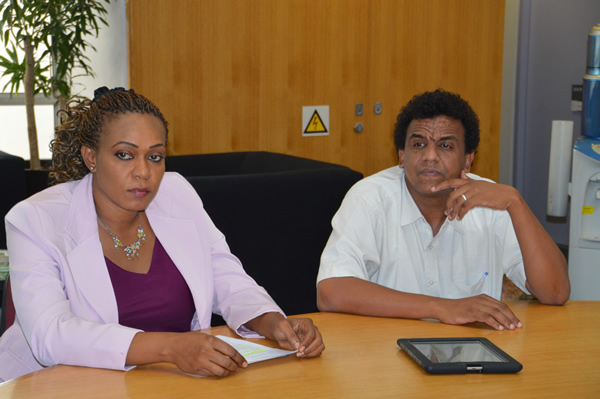Worsening human rights situation in Sudan remains a source of regional concern. Attention was drawn to this saddening trend again when the Centre for Human Rights hosted a team of visitors from Sudan on 31 October 2013. Amira Osman Hamed who came in the midst of other human rights activists from the country stunningly related how she faces trial in Sudan for breaking article 152 of Sudanese Penal Code requiring all women to cover their heads. For daring to be different, Amira faces the possibility of being flogged upon conviction. Article 152 arbitrary prescribes 40 lashes for ‘any conduct or clothing in violation of public decency’. The nature of the trial does not allow her any chances of an appeal against the decision of the court once found guilty as charged. This generally raises concern about the deprivation of the dignity of Sudanese women and the gagging of the media in reporting on human rights situation which has been on the increase since morality laws took effect in Sudan following the coming into power of President Omar al Bashir.
In particular the ‘morality laws’, its prosecution and the manner of implementation are entirely in violation of respect to dignity of human persons guaranteed under international instruments including the International Covenant on Civil and Political Rights (ICCPR) and the African Charter on Human and Peoples’ Rights (ACHPR) to which Sudan is a state party. Also, it is a total disregard for the decision of the African Commission which has found that flogging is a violation of article 5 of theACHPR and the consistent recommendations by the Human Rights Committee of the ICCPR calling for abolition of corporal punishment in Sudan.
In response to the narratives by Amira and her colleagues, the Centre for Human Rights volunteers to work with the legal team representing Amir at the court in Sudan and offers its views on exploring the possibility of lodging a case on behalf of Amira before the African Commission on Human and Peoples’ Rights. It is hoped that Sudan will retrace its steps from this worrying spate of human wrong into fulfilling the human rights of its citizens.
Amira, who visited South Africa, last week, returned to Sudan for her trial on 4 November 2013. On the trial date, instead of quashing the case for want of diligent prosecution, the court decided to adjourn the matter without setting out the date for further hearing. The implication of this is that the matter remains active and continues as a repressive strategy to restrict the freedom of Amira or others who wish to follow her path in confronting the Sudanese ‘morality laws’ in the name of human rights.


